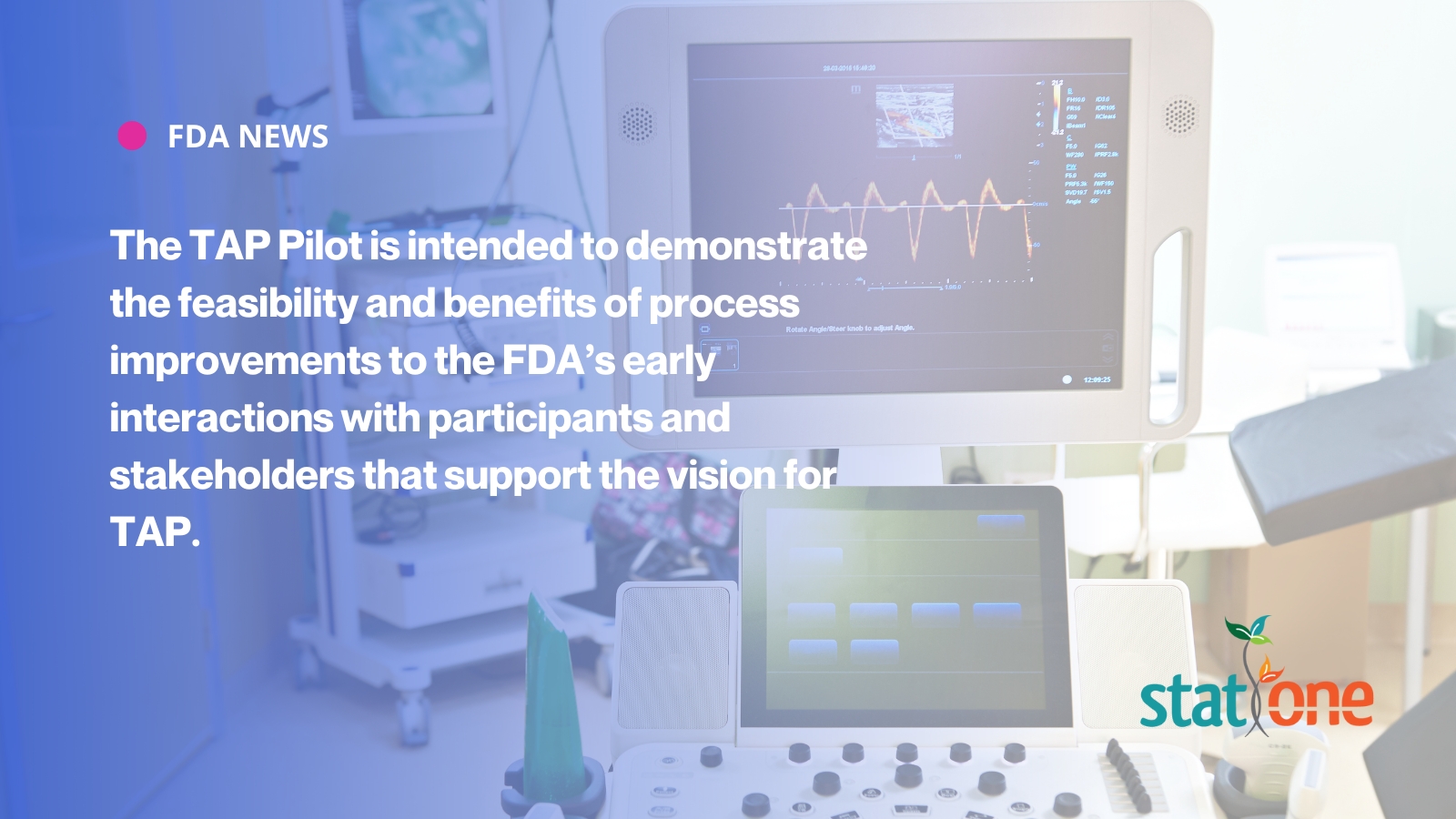
FDA Selects Seven Sponsors for START Pilot Program to Accelerate Rare Disease Therapeutic DevelopmentFDA Selects Seven Sponsors for START Pilot Program to Accelerate Rare Disease Therapeutic Development The FDA has chosen seven companies to participate in the Support for Clinical Trials Advancing Rare Disease Therapeutics (START) Pilot Program. START aims to expedite the development of new drugs and biologics for rare diseases. By collecting data on how to efficiently develop such therapies, the program will assist sponsors in producing high-quality evidence to support future applications for new drugs or biological products. Participating Companies and Therapeutic Areas: Center for Drug Evaluation and Research (CDER) * Larimar Therapeutics: Nomlabofusp for Friedreich’s ataxia * Calico Life Sciences: ABBV-CLS-7262 for disappearing white matter disease * Denali Therapeutics: DNL 126 for mucopolysaccharidosis type IIIA (Sanfilippo syndrome) Center for Biologics Evaluation and Research (CBER) * Grace Science: GS-100 (AAV0-rhNGLY1) for NGLY1 deficiency * Moderna TX: mRNA-3705 for isolated methylmalonic acidemia * Myrtelle: rAAV-Olig001-ASPA for Canavan’s disease * Neurogenic: NGN-401 for Rett syndrome Benefits for Participants: START participants receive guidance from the FDA on product-specific development issues, such as trial design, control groups, and patient populations. This early support aims to prevent potential delays or obstacles to trial progression. Participants also gain access to FDA programs designed to facilitate evidence generation and innovative trial designs. Eligibility Requirements: To be eligible for START, sponsors must meet the following criteria: * Clinical trial underway under an active Investigational New Drug Application (IND) * IND submitted in or converted to Electronic Common Technical Document (eCTD) format * Significant efforts made to align Chemistry, Manufacturing and Controls (CMC) development with clinical development * Products intended to address unmet medical needs for serious rare diseases or conditions Collaboration and Future Prospects: CBER and CDER aim to work together through START to provide better treatment options for patients with rare diseases. The pilot program will offer opportunities for closer engagement with sponsors, potentially leading to faster achievement of regulatory milestones, if scientific evidence supports it.
The seven chosen sponsors will help accelerate the development of new drugs and biologics for rare diseases.
FDA has selected seven companies to participate in the Support for Clinical Trials Advancing Rare Disease Therapeutics (START) Pilot Program. START was established to advance the development of new drugs and biological products for rare diseases. The pilot will gather information on how best to facilitate the efficient development of therapies for rare diseases and help sponsors generate high-quality data to support applications for new drugs or biological products.
The Center for Drug Evaluation and Research (CDER) has selected the following companies to participate in START for the development of rare neurodegenerative diseases:
- Larimar Therapeutics to treat Friedreich’s ataxia via its Nomlabofusp product
- Calico Life Sciences will treat disappearing white matter disease with its ABBV-CLS-7262 product
- Denali Therapeutics for its DNL 126 product for the treatment of mucopolysaccharidosis type IIIA (Sanfilippo syndrome).
The Center for Biologics Evaluation and Research (CBER) chose the following companies for their gene or cellular therapies to treat rare diseases:
- Grace Science for their GS-100 (AAV0-rhNGLY1) product to treat NGLY1 deficiency
- Moderna TX for their mRNA-3705 product for the treatment of isolated methylmalonic acidemia due to complete or partial methylmalonyl coenzyme A mutase deficiency
- Myrtelle will treat Canavan’s disease with their product, rAAV-Olig001-ASPA
- Neurogenic for the treatment of Rett syndrome with NGN-401.
“Although there were a number of excellent and qualified candidates, there was only a limited number of programs available within the START Pilot Program. In making these selections, we took into account the strength of the development programs and the unmet medical need represented by the circumstances indicated. To aid our evaluation of the program, we also sought to include a spectrum of entities in the pilot, ranging from companies initially founded to produce a single product to established biotechnology companies,” said CDER Director Patrizia Cavazzoni and CBER director Peter Marks. 1).
START participants receive guidance from the FDA on product-specific development issues such as clinical trial design, control groups, and patient populations. Early development issues are addressed to avoid potential delays or prevention of trial progression. Access to FDA programs such as the Advancing Real-World Evidence Program, Complex Innovative Trial Design program, Translational Science Team, and Rare Disease Endpoint Advancement Pilot are provided to START participants.
Eligibility requirements to participate in START per FDA include (2):
- “For both CBER and CDER, the program is open to sponsors of products that are currently in clinical trials under an active Investigational New Drug Application (IND) and the IND is submitted in or converted to the Electronic Common Technical Document (eCTD) format, unless the IND is of a type for which an eCTD format exemption has been granted.”
- “For both CBER and CDER, the program is open to sponsors who have made significant efforts to ensure that Chemistry, Manufacturing and Controls (CMC) development is aligned with clinical development.”
- “For CBER, eligible products must be a gene or cellular therapy intended to address an unmet medical need as a treatment for a serious rare disease or condition that is likely to result in significant disability or death within the first 10 years of life.”
- “For CDER, products must be intended for the treatment of rare neurodegenerative disorders, including disorders with a rare genetic metabolic etiology.”
“CBER and CDER look forward to actively working together to achieve our shared vision of providing better treatment options for patients and their families. Through the START pilot program, the opportunity for greater engagement with selected sponsors should facilitate faster achievement of regulatory milestones, if supported by the data and science,” Cavazzoni and Marks said (1).
References
- FDA. FDA opens the door to more treatments for rare diseases through new START pilot program. FDA.gov. June 27, 2024. https://www.fda.gov/drugs/our-perspective/fda-opens-doors-more-treatments-rare-diseases-through-new-start-pilot-program
- FDA. Support for clinical trials to advance the Rare Disease Therapeutics Pilot Program (START). FDA.gov. Updated June 27, 2024. https://www.fda.gov/science-research/clinical-trials-and-human-subject-protection/support-clinical-trials-advancing-rare-disease-therapeutics-start-pilot- program
















.png)

/cloudfront-us-east-1.images.arcpublishing.com/tgam/6L2DWRK36REJ3HKV4T4L6ZGP7Q.jpg)







